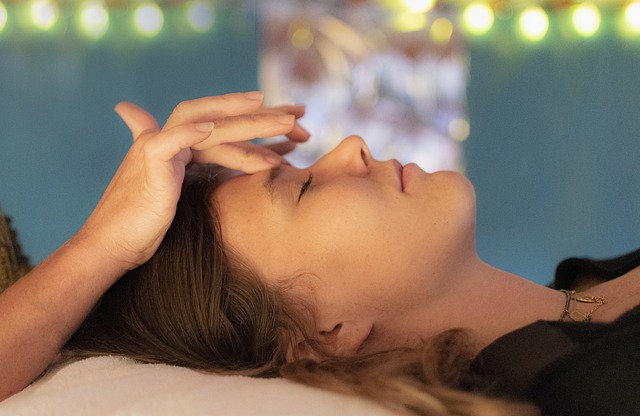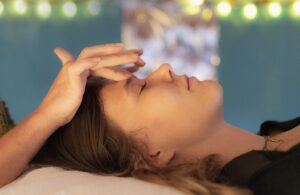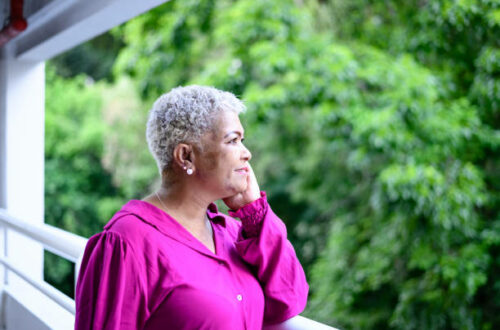
Review of Reiki: The Pros and Cons
“Reiki is love. Love is wholeness. Wholeness is balance. Balance is well-being. Well-being is freedom from disease.”—Dr. Mikao Usui
This blog reviews other articles on the benefits and risks of Reiki Therapy.
Source articles include:
Better Health Channel
https://www.betterhealth.vic.gov.au/
Cleveland Clinic
https://my.clevelandclinic.org/
Medical News Today
https://www.medicalnewstoday.com/articles/308772
National Library of Medicine
Reiki.org
Reiki Stories:
#1.
“One of my patients had kidney cancer. She experienced pain in her hip. The first time I saw her, I could see the stress on her face. Our session lasted an hour, and she slept. Afterward, she was relaxed and expressed feeling relief from her pain.
“It has been a joy to see how Reiki offers relief from stress and pain. Sharing Reiki with others is an awesome experience. It is very rewarding to be a positive force in people’s lives.”
#2.
“One of my friends was emotionally dark for nearly a year because of failed and hurtful relationships. I felt very strongly that she needed a session or Reiki. She listened to me!
“After her session, which was a 4-day weekend retreat, my friend returned with a clear mind, a new outlook on her life and her relationships, and a clear focus on her future.
“Gone was the depression and she had begun to heal her heart and focus on her future and move in a positive direction.”
#3.
“My mother suffered from acute knee pain for the past few years. Yesterday, she took the Reiki 1 class, and to everyone’s awe, she was able to take the staircase and walk smoothly to the third floor of the building.
“She said her knee trouble had subsided 80% since her session and no longer feared staying alone. This fear seems to have subsided miraculously after just one day with Reiki. What an experience!”
Is Reiki something you want to try?
In this blog post, I will share the pros and cons of Reiki therapy according to the experts to ensure you have the knowledge to decide by answering five (5) questions:
- What is Reiki?
- How does Reiki help people?
- What are the risks of Reiki?
- What do the experts say about Reiki?
- Should “you” try Reiki?
Let us begin.
What Is Reiki and the Philosophy Behind It?
Reiki is a form of alternative therapy that originated in Japan in the early 20th century.
Reiki is not a religion and is not associated with religious practice.
Reiki has no teachings or beliefs.
There are no tenants you must adhere to use Reiki.
However, practicing Reiki is more beneficial if you also practice the ethical ideals to promote peace and harmony.
The word “Reiki” is composed of two Japanese words: “rei,” which means “universal,” and “ki,” which means “life force energy” or “vital energy.”
Reiki practitioners believe that this life force energy flows through all living things and is responsible for maintaining physical, emotional, and spiritual well-being.
The practice of Reiki involves the transfer of this life force energy from a practitioner to a recipient through the practitioner’s hands.
The practitioner places their hands on or near the recipient’s body in a series of specific hand positions, intending to channel healing energy to promote relaxation, balance, and healing.
Healthcare professionals often use Reiki as a complementary therapy alongside conventional medical treatments.
Reiki proponents believe it can help reduce stress, promote relaxation, and support the body’s natural healing processes.
However, know that scientific evidence supporting these claims is limited.
Reiki is considered by many in the medical and scientific communities to be a form of pseudoscience.
But, of course, there are opposite views of Reiki.
Words often associated with Reiki:
- Healing
- Therapeutic
- Holistic
- Complementary
- Herbal
- Spiritual
- Universal
Philosophy
“The underlying philosophy of Reiki is that if a person’s energy is low, they are more likely to be unwell or stressed. If it is high, however, they are more capable of being happy and feeling well. Reiki will not cure illnesses or disease but may help your body feel more relaxed and peaceful.”—Better Health Channel.
How Does Reiki Help People?
While not a religious practice, Reiki is a spiritual practice like meditation.
Though Reiki is spiritual, it has no dogma, and there is nothing you must believe in to learn and use Reiki.
Many people use Reiki to improve their lives and ease ailments.
The potential health and emotional benefits of Reiki include:
- Improved sleep.
- Pain management.
- Lowered blood pressure.
- Stress reduction.
- Support for healing.
- Improved mood.
- Spiritual growth.
- Self-awareness.
- Confidence.
- Creativity.
Reiki treatment may create feelings of:
- Peace
- Relaxation
- Security
- Wellness
(Source: Cleveland Clinic)
Catherine McQuade, MS, a Rehabilitation Specialist at New York Presbyterian Addiction Recovery Unit, says:
“Many of our patients come into the hospital with a history of medical problems. They are malnourished, fearful, hopeless, and can be in severe physical, spiritual, and mental pain. Reiki has proven helpful in dealing with these issues for each patient in their own way. It can be a meditative, spiritual experience.”
What Are the Risks of Reiki?
Reiki is a complementary therapy that works alongside other medical and therapeutic techniques, not by itself a treatment for illness or disease.
It would be a mistake for a cancer patient to abandon medically proven treatments such as surgery, chemotherapy, and radiotherapy.
Always talk with your doctor before abandoning your conventional treatment.
Do NOT stop any medical treatments on the advice of your Reiki practitioner.
Who Is a Reiki Practitioner?
A professional Reiki Practitioner has completed the required level of Reiki courses, is certified by a reputable organization, and is insured appropriately.
A professional Reiki practitioner should also have first-aid skills and membership in a professional organization.
“Reiki One Practitioner means a person who has completed a minimum of nine hours of coursework over a minimum of a two-day period in a Board approved Reiki One course taught by a registered Reiki Master Teacher and has passed a Reiki One examination administered by the Board.”—Texas Legislature Online (gov)
However, it can take up to three (3) years of training to become a full Reiki Master and to teach.
What Do the Experts Have to Say About Reiki?
Experts’ opinions on Reiki vary widely, and it is a topic of ongoing debate within the medical and scientific communities.
Here are some common perspectives from experts:
- Lack of Scientific Evidence. Many experts, particularly in the medical and scientific fields, argue that there is a lack of scientific evidence to support the effectiveness of Reiki.
- Placebo Effect. Some experts believe and attribute the perceived benefits of Reiki to the placebo effect. In other words, people believe in the therapy and may experience improvements in their health.
- Safety and Harm: Critics of Reiki also raise concerns about its safety when used as an alternative to conventional medical treatments.
- Lack of Regulation: In many countries, Reiki practitioners are not subject to a different level of regulation and oversight than medical professionals.
- Positive Anecdotal Evidence: On the other hand, some individuals and practitioners of Reiki argue that they have experienced or witnessed positive effects from Reiki treatments. They often emphasize the holistic and complementary nature of Reiki, suggesting its use alongside conventional medicine.
- Mind-Body Connection: A subset of experts and practitioners believes that Reiki may have value as a form of relaxation and stress reduction. They argue that the mind-body connection is essential to health, and practices like Reiki may help promote relaxation and overall well-being.
Experts’ opinions on Reiki remain divided, and the treatments remain controversial.
If you are interested in Reiki, consult with your healthcare professional and make an informed decision about its use as a part of your overall healthcare strategy.
Should “You” Try Reiki?
Indeed, there are many pros and cons, as noted in this article.
For instance, the Cleveland Clinic lists many benefits of Reiki:
“Reiki complements other types of medical and therapeutic treatment, and it can increase the efficacy of other types of healing.”
But the Clinic further cautions that Reiki treatment “should not be used as a substitute for consultation of a physician or psychotherapist.”
Want to try Reiki?
The best way to find a Reiki practitioner is by referral from a friend.
Do not be afraid to question the practitioner’s credentials, training, and professional association membership.
Can the practitioner provide references or testimonials from clients?
Also, try investigating health food stores and holistic health facilities.
Is there a Reiki-sharing group online? Visiting such a group would be an excellent way to meet Reiki people and learn about them and their experiences.
However, in the final analysis, whether to try Reiki is up to you.
Key Takeaways
After reading this article, have you gained enough knowledge about Reiki that you want to give it a try?
You now have the answers and can consider these five (5) questions:
- What is Reiki?
- How does Reiki help people?
- What are the risks of Reiki?
- What do the experts say about Reiki?
- Should you try Reiki?
Will you give Reiki a shot?
Why not begin today?
“Reiki is the art of inviting happiness into your life.”—Mikao Usui.
Content Disclaimer:
The content in this blog is provided for information purposes only and not intended to constitute a comprehensive concerning all aspects of Reiki therapy.




